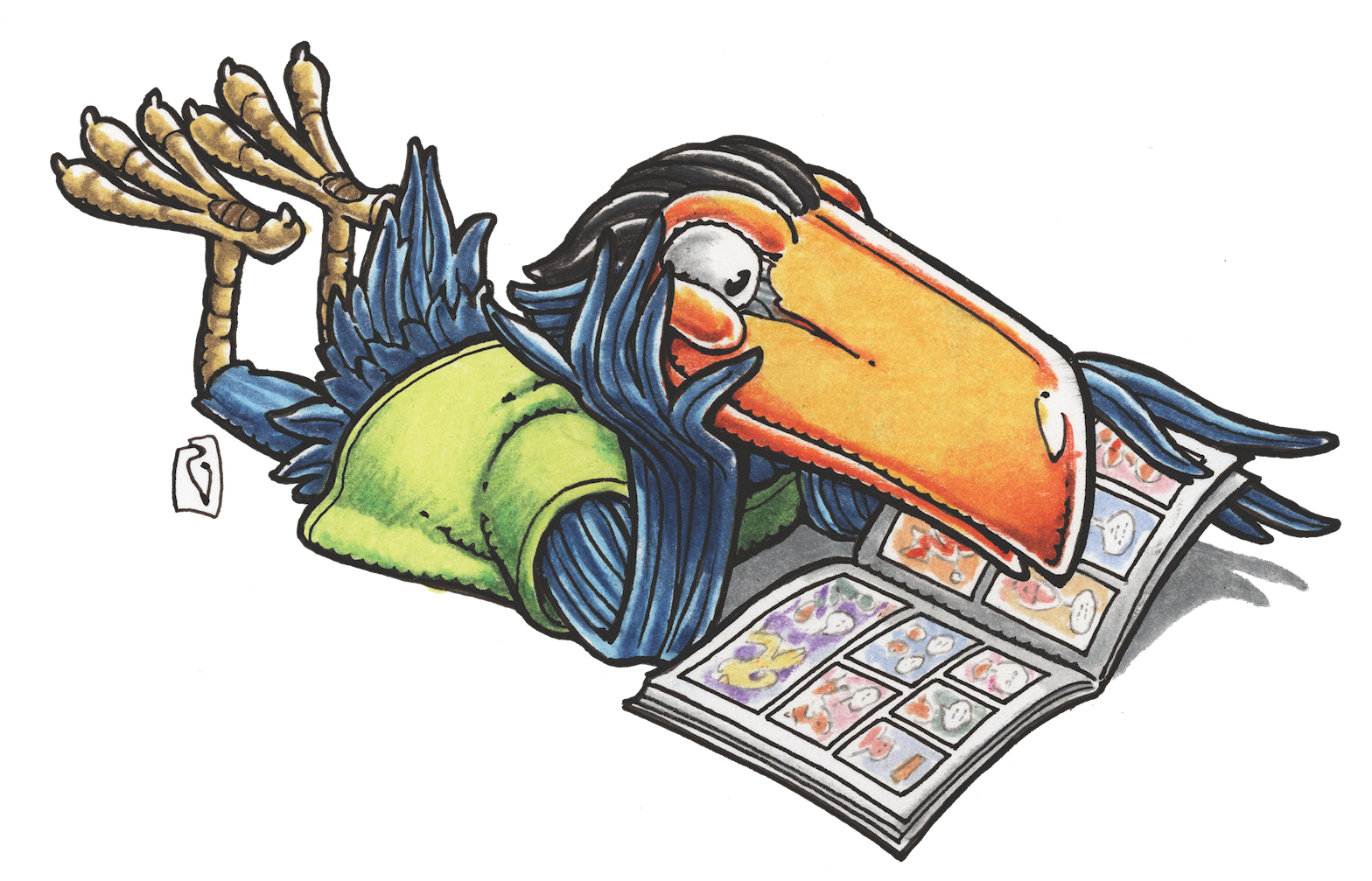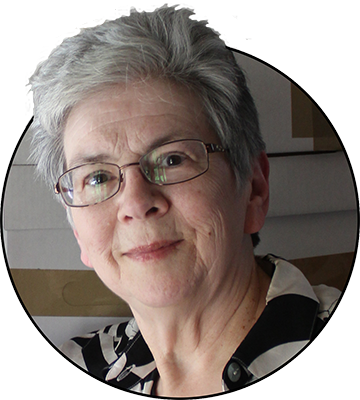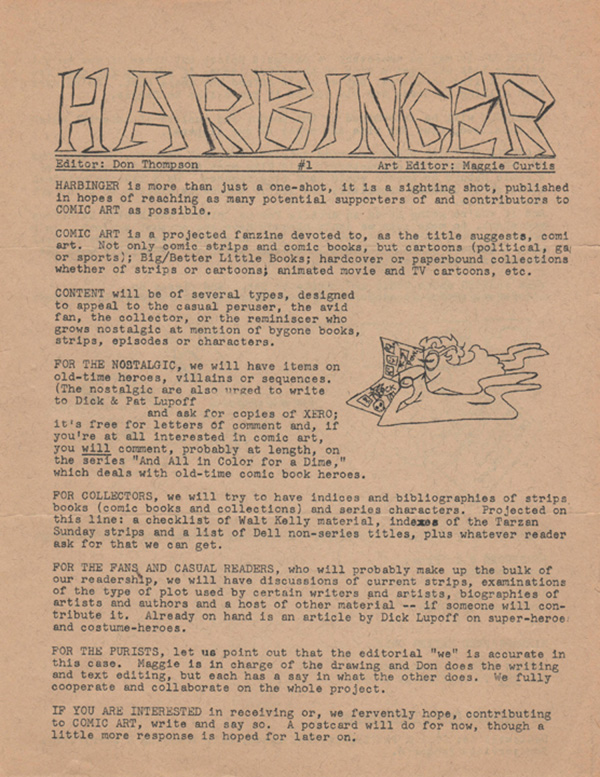MAGGIE’S WORLD BY MAGGIE THOMPSON
Maggie’s World 020: Do It!


In its July 28 report, The Guardian called it “the storied panel” and described it as “an institution of established mentors and frank discussion about characters and culture.” Begun in 1998, “The Black Panel” at Comic-Con International: San Diego struck an even more resonant note than usual with me this year, and I wanted to share its take-away message. Because I think we’re at one of those so-called tipping points (thanks, sociologist Morton Grodzins, economist Thomas Schelling, and journalist Malcolm Gladwell) that means we are now in a world that has changed how we can do things. I wanted to bring it to your attention, because (given the busy universe that is Comic-Con) you might have missed it.
“The Black Panel,” produced by marketer Tatiana EL-Khouri, featured as its host its founder, Michael Davis. Panel members (and a few of their many credits) this year were as follows: Orlando Jones is a comedian, actor, MADtv and Sleepy Hollow performer, 7-Up spokesman, voice artist, and writer. Ne-Yo is an award-winning R&B singer, writer, record producer, dancer, and actor. J. August Richards played vampire-hunter Charles Gunn on Angel (2000) and Deathlok in Marvel’s Agents of S.H.I.E.L.D. (2013), but—asked why there was such a hiatus between the two roles—he stood to rattle off such intervening projects as 13 episodes of Conviction and 25 episodes of Raising the Bar. Kevin Grevioux (with an amazing voice, not to mention a degree in microbiology, minoring in chemistry and psychology, and at one point working toward a Masters in genetic engineering) started the graphic novel imprints DarkStorm Studios and Astounding Studios, acted in The Mask and Steel, was involved in the creation of Underworld, and wrote I, Frankenstein. Award-winning actress and singer Cree Summer started her voicing career as Penny on Inspector Gadget when she was 14 and among her many performances over the years were roles on The Cosby Show, A Different World, Living Single, and Batman Beyond; she is also a professional writer. Actress Erika Alexander also wrote Living Single and co-created and co-wrote the Concrete Park series that began in Dark Horse Presents (2nd series) #7.
Positive approach
Each panel member took an activist approach to its theme of ways to achieve diversity in popular culture. Each agreed that this is a time when the individual creator can do it alone, now that the diversity is available to us all. Each was positive and encouraging, while warning of pitfalls:
“Do what it is that you do.”
“Don’t pay attention to the haters.”
“A good idea on the Net is a good idea everywhere.”
Ne-Yo cautioned, “It’s not going to be easy,” noting the many struggles they’d all had to get to where they were. Alexander encouraged, “Create it and put it out there. Barriers are in your mind.”
When an audience member spoke of Tweeting once a day to self-promote, Jones (whose Twitter handle is @TheOrlandoJones and whose descriptor reads, “Not the little boy from Everybody Hates Chris. Not Solange Knowles. Not Orlando Bloom. Not the black Jeff Goldblum. Not Isaiah Washington. Not Mos Def.”) responded, “Post more often: 20-30 times per day!”
It works
As their suggestions continued, I was struck with how closely what they were saying was supported by my own memories. My late husband, Don, and I were pioneers—but in our case, it was because we wanted things that weren’t available, so we made those things ourselves: not unlike the proverbial Little Red Hen.

Activating support for a project was more complicated in 1960. It’s easier these days.
We wanted to know more about the people who created the comic books we loved—and about the business that produced and circulated them. We were active in a world of science-fiction fans and pros—a world in which information on that field was readily available via the magazines and the fanzines devoted to them and their history. But we couldn’t find anything similar about comics. So in 1961 we made the fanzine Comic Art ourselves.
The organizer and central mailer of the first comics amateur publishing association decided he didn’t want to handle the job any more. So we took over the job in 1966 on an interim basis. Because somebody had to do it, we organized and mailed K-a ourselves.
Eventually, there was an assortment of newsletters about what was being published in the world of then-current super-hero comics—but no newsletter devoted to what was going on in the lives of our fellow fans and collectors. So in 1967 we made Newfangles ourselves.
We were collecting comic books but couldn’t figure out what the Dell Four Color series numbers stood for, so we wrote to Dell to ask for a listing. We were told none existed. So in 1968 we made A Listing of Dell Special Series Comic Books (and a Few Others) ourselves.
We knew a lot about the world of fans and fandom, but a lot of the kids in the newly emerging comics fandom didn’t, and there was precious little guidance for them. So in 1969, we made How to Survive Comics Fandom ourselves.
The annual fan awards for comics went away. We thought preserving a record of past winners and establishing an ongoing award would be handy. So in 1971, we made A Decade of Comics Fan Awards 1961-1970 ourselves.
Our memories of the early days of comics fandom began to fade, and we looked for a history of the development of that world, but no one had done one. Somebody had to do it, so we began a column in Comics Feature that analyzed it year by year. (I hadn’t looked till now at The Fandom Zone, which collected those articles in 1982. Maybe this would be the time to reprint them online, because— well, you get the idea.)
Chet Krause owned a Wisconsin publishing company devoted to magazines about a number of collecting hobbies. And he was looking in 1982 for an editorial staff to turn the existing advertising weekly The Buyer’s Guide for Comic Fandom into a typeset newspaper format. So we did.
OK, I’ll stop my list—but the point is: If you want something (a certain kind of story, in-depth research, a party, a costume, a community, a career) and it’s not out there, make it yourself.
Because you no longer need a mimeograph and stamps and collating parties and an established network to “Do what it is that you do.”
By the way
As the panel came to an end, panel members were asked whether they now considered themselves to be at the peak of their respective careers.
The unanimous answer from the various authorities: No! Each had plans and ambitions for projects yet to come. And they were preparing to put those plans into action.
So can you.
Maggie’s World by Maggie Thompson appears the first Tuesday of every month on Toucan!